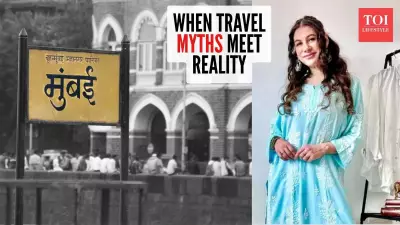
In an era dominated by digital entertainment and quick content consumption, the ancient wisdom of India's Panchatantra continues to stand the test of time. These remarkable fables, composed over two millennia ago, remain surprisingly relevant in today's fast-paced world, offering profound insights into human nature, relationships, and decision-making.
The Origins and Historical Significance
The Panchatantra represents one of India's most significant contributions to world literature. Vishnu Sharma, a learned scholar from ancient India, originally composed these stories around 200 BCE. According to historical accounts, he created these engaging tales to impart practical wisdom and statecraft to three disinterested princes who showed little enthusiasm for conventional learning methods.
The name 'Panchatantra' itself reveals the structural genius behind this work. It translates to 'Five Treatises' or 'Five Principles,' reflecting how the stories are organized into five main sections. Each section focuses on different aspects of life and governance, creating a comprehensive guide to navigating complex social and political landscapes.
Global Journey and Lasting Impact
The journey of the Panchatantra across continents and cultures stands as a testament to its universal appeal. These Indian fables traveled extensively through Persian, Arabic, Greek, and Latin translations, eventually reaching virtually every corner of the civilized world. The stories underwent numerous adaptations while retaining their core messages about human behavior and ethical conduct.
What makes the Panchatantra particularly remarkable is its storytelling approach. Rather than delivering direct moral lectures, the tales employ animal characters to illustrate complex human situations. This narrative technique allows readers to absorb lessons about friendship, betrayal, wisdom, and foolishness without feeling preached to. The familiar 'story within a story' format keeps audiences engaged while subtly conveying important life principles.
Contemporary Relevance and Educational Value
In modern educational contexts, the Panchatantra continues to demonstrate its value. Educators and parents increasingly recognize how these ancient stories effectively teach children about consequences, relationships, and ethical decision-making. The animal characters make the lessons accessible to young minds, while the layered narratives provide depth that resonates with adult readers as well.
The enduring popularity of these fables highlights their psychological insight into human nature. Stories about clever jackals, loyal friends, foolish lions, and wise birds continue to mirror contemporary social dynamics. The situations these animal characters face—friendship challenges, leadership dilemmas, and strategic thinking requirements—remain strikingly similar to those encountered in today's corporate world, family life, and social interactions.
As digital platforms and publishing houses continue to reintroduce the Panchatantra to new generations, these ancient Indian fables prove that true wisdom transcends time and technological advancements. They serve as a bridge connecting India's rich cultural heritage with modern storytelling, reminding us that fundamental human values and challenges remain constant despite centuries of societal evolution.





